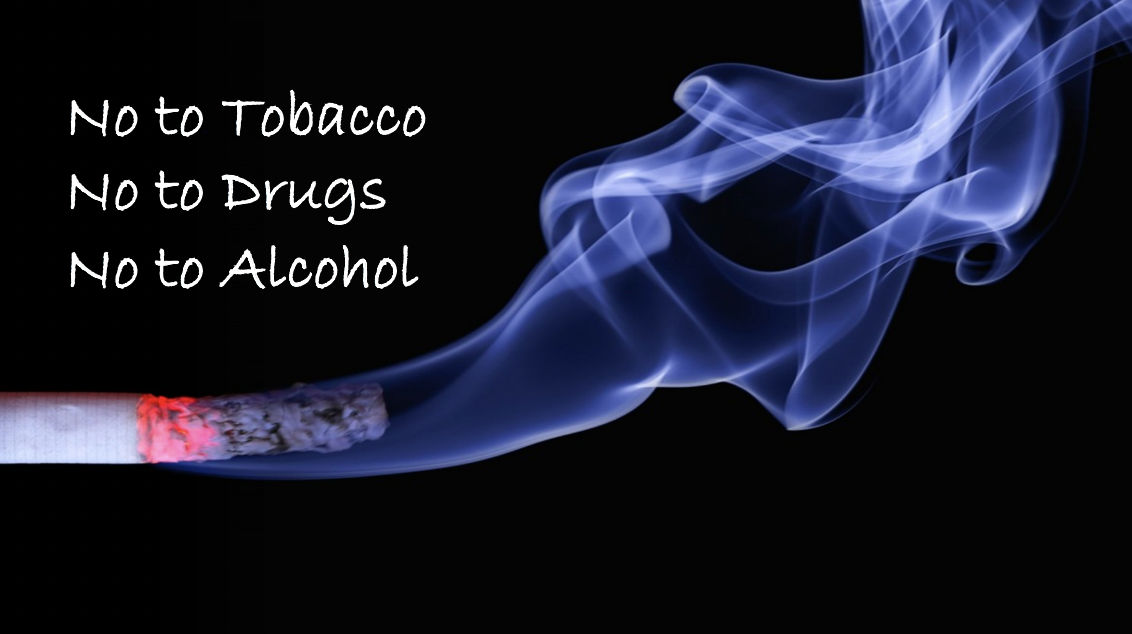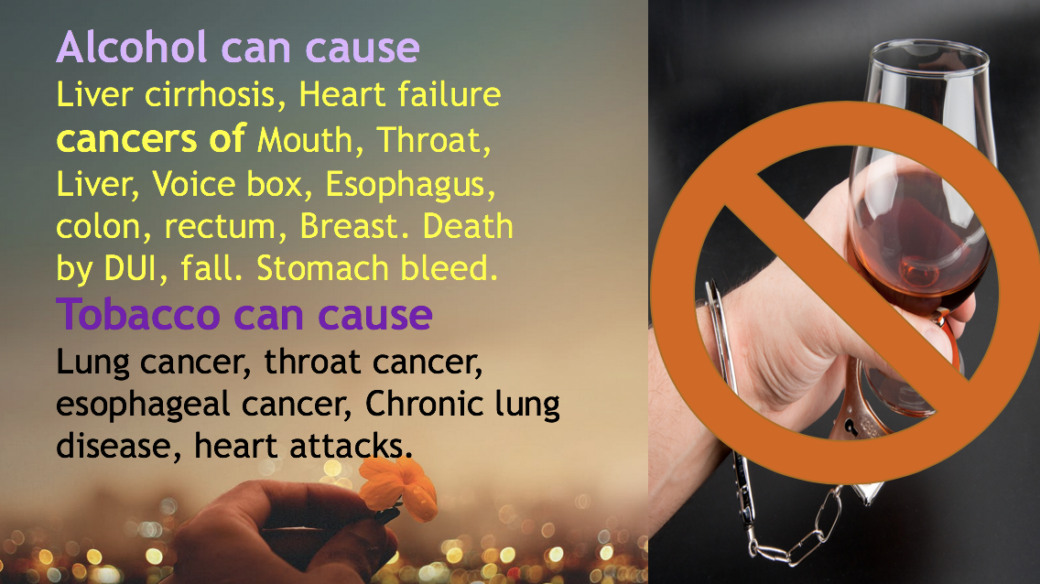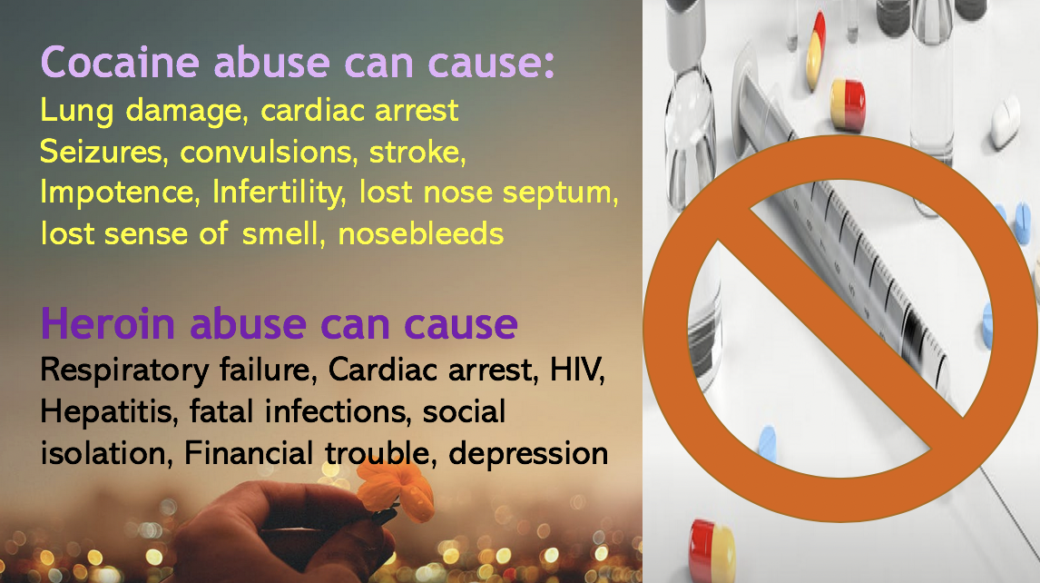
There is a crisis
The crisis of drug addiction has extended beyond the boundaries of all communities. It is vital to educate ourselves about the dangers of drug, alcohol, and tobacco addictions. Likewise, we should teach our children about these drugs’ disastrous effects on our health, social relationship, and economic state. Also, we need to watch out for the danger signs of addiction in our children. Indeed, our complaisance can fool us! Addiction can affect anyone in our close family or friends. This is to say that we need to help each other before the disaster strikes.
Please click: to find Booklets, VDOs, and free courses in the following link. https://www.drugfreeworld.org/FURL/data/www.drugfreeworld.org/files/truth-about-cocaine-booklet-en.pdf
The thrill that brings misery
Addiction is a leading cause of physical and psychological disabilities caused by human behavior. The temporary pleasure from the intoxicants frequently turns into chronic addiction. We must remember that addiction comes with accompanying social and personal misery. The Quranic term Khamr (Arabic: خم) means intoxicant. Traditional Islamic literature often uses Khamr for alcohol., though it is reasonable to include other addictive agents to the list. The list contains all narcotic agents, cocaine, marijuana, amphetamine, etc. Prophet (Peace be upon him) said: every intoxicant is khamr, and every khamr is forbidden.
Things you need to know about addiction


The history of addiction
People from very early times in the history used intoxicants. During the Babylonian era, the Babylonian worshipers used stimulants as early as 2700BC. Also, the Chinese around 7000 BC. and the ancient Egyptians also used intoxicants.
This is clear and simple in Islam
The Quran has made it’s standing clear on the issues of alcohol and other intoxicants. The Quranic approach to these issues is deliberate. It also takes into account the human physiological effects of sudden withdrawal from these substances.
Medical science meets the Quran on Alcohol
Prof Jeremy Pearson, the associate medical director at the British Heart Foundation, has echoed the Quranic view on Alcohol. In his statement, he mentioned: “While there may be a slight benefit to heart and circulatory health from modest drinking, many studies have shown that the overall health risks of drinking alcohol outweigh any benefits.” https://kfor.com/2018/08/24/no-amount-of-alcohol-is-good-for-your-overall-health-global-study-says/
The following Quranic verse summarizes the findings on Alcohol consumption by modern medical science.
The Quran: 2:219 “…They ask you concerning wine (Khamr) and gambling. Say: “in them is a great evil, and some benefit for men; but the evil is greater than the benefit….”
The Lancet published a recent comprehensive study on Alcohol’s effect by Bill and Melinda Gate Foundation. Link: https://www.thelancet.com/journals/lancet/article/PIIS0140-6736(18)31310-2/fulltext
The Quranic prohibition
The new Muslims, like the Arabs of the time, used to drink alcohol. Jabir ibn Abd Allah narrated that some people drank alcoholic beverages in the morning of the Uhud battle. They died as martyrs on the same day. However, this happened before the Quran prohibited wine. The prohibition of Alcohol came in stages.
Discouragement of intoxicants
The Quran began with a prohibition on attending prayers under the influence of substances. Because intoxicants can fog people’s minds. (Quran: 4-43)*
Preparation to abandon intoxicants
Another verse followed this initial verse suggesting that intoxicants had some benefits and had something unacceptable ill effect. However, the ill effects were much greater than the good in it. (Quran: 2-219)*
Progression to total prohibition
Finally, the Quran revealed the absolute ban on consuming alcohol and intoxicants. (Quran 5: 90-91).

The Quran: 4-43
“….O you who believe! Do not approach to prayers with a mind befogged, until you can understand all that you say…..”
The Quran 2-219
“…They ask you concerning wine and gambling. Say: “In them (wine and gambling) is a great evil and some benefit for men. But the evil is greater than the benefit….”
The Quran 5:90
” O you who believe! Intoxicants, and gambling and idolatrous practices, and the divining of the future are, but loathsome evil of Satan’s doing. Shun it, then, so that you may succeed!”
Withdrawal syndromes
With modern medicine, we know that sudden cessation of alcohol or other drugs can cause withdrawal syndromes. The withdrawal syndrome could be severe and even fatal. However, we can avoid these withdrawal effects if we participate in a structured rehabilitation program under professional supervision.
Minimizing the withdrawal syndrome
The Quranic deliberation to intoxicants addresses the concern of sudden withdrawal from drugs. The gradual approach to complete prohibition made it easier for the Muslims to taper the habit off and also helped them to adjust socially with the ban. Moreover, it lessened the economic impact on the people who relied on alcoholic trade for their livelihood.
Spiritual benefits of abstaining
Finally, abstaining from alcohol and other drugs help develop self restrain, is a great form of worship, if we do this intending to please our Creator. Collecting the strength to say “no” to our urges is self-empowering. This is also a part of striving against our inner self (Jihad) and helping ourselves follow the straight path.
Impact of Alcohol on health and society
3.3 million deaths, or 5.9% percent of all deaths worldwide were attributable to alcohol consumption in 2012. *
An estimated 88,000 people die from alcohol-related illnesses each year in the United States.*
Driving under Alcohol influence caused 9,967 deaths (31 percent of overall driving fatalities) In 2014 in the USA.*
Alcohol abuse cost the United States $249.0 billion in 2010.
* Source of information: https://www.niaaa.nih.gov/
To learn more about the significance of the Qurans’ consistency with modern science, please follow the link: https://qpeace.net/?p=8207


Be the first to comment